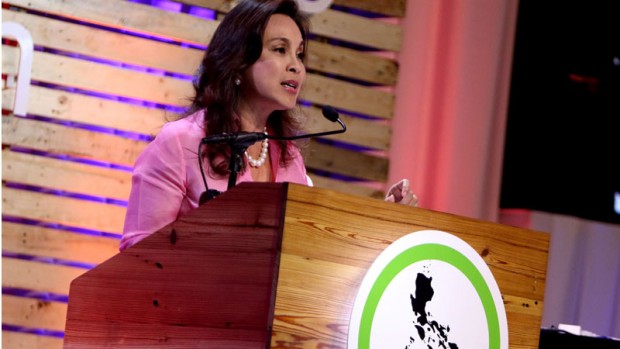Legarda backs review of PH energy policies
Senator Loren Legarda has expressed support for the Climate Change Commission’s (CCC) policy review of all existing energy policies amid the challenges in government’s efforts to fast track the development of renewable energy resources in the country.
Legarda, chair of the Senate committee on climate change, said the country is rich in renewable energy (RE), citing past studies by the US National Renewable Energy Laboratory, which indicated that the Philippines has 246,000 megawatts of untapped renewable energy capacity.
“This is thirteen times more than our current installed capacity. Failure to develop these capacities would be unforgivable,” she said in her message during the launch of energy policy review in Malacañang Thursday.
READ: PH energy source review underway; shift to renewables in focus
Aside from the existing Renewable Energy Law that provides for the full development and use of RE in the country, Legarda said the National Renewable Energy Program has also set out aggressive targets on renewable energy development from 2011-2030 to increase RE capacity to 15,304 megawatts by the year 2030.
Article continues after this advertisement“There have been challenges, however, in our efforts to fast track the development of our renewable energy resources more aggressively. This is why the review of our energy policies is most welcome,” she said.
Article continues after this advertisementLegarda said that while the Philippines has yet to ratify the Paris Agreement, the CCC was taking an important step towards keeping the country’s commitment to mitigate climate change by doing a review on energy policies.
“It is true that we need energy to build the foundations of our growth and I subscribe to a healthy energy mix, not on the misguided axiom that our country should develop and acquire the energy and power it needs at all costs, regardless of whether it sustains or kills life,” she said.
“Today’s issue is not just about security of energy supply. It is not just about reliability or affordability. It is about increasing clean energy supply, and using it wisely and efficiently. Energy security that assails the safety of our people and the environment can never guarantee inclusive development.”
READ: Solar energy competitive vs coal
Legarda pointed out that based on the Department of Energy’s Energy Policy and Planning Bureau, the indigenous renewable energy resources could help address the expected average increase in demand for energy at 4.79 percent per year, at the same time, realize the provision of electricity to more remote sitios.
Thus, she said, a window for high carbon dioxide avoidance potential to support sustainable energy development was achievable.
“We have to admit that we cannot totally get rid of coal today. Since we have not developed enough baseload renewable energy, we need to see coal as a transition energy source. But we seek the development of more renewable energy capacities so that in time, we can achieve greater self-sufficiency, sustainability and security in the energy sector,” said the senator.
The CCC, together with key government agencies, has six months or until the end of the year to conduct a national review and craft a framework development on energy based on a resolution it issued last month.
After the review, Legarda said the Commission will come up with a comprehensive policy framework on energy based on the synthesis of comments and recommendations from the series of consultations, dialogues and discussions.
This framework , she said, should be the basis for executive or legislative actions on energy policy reform.
“The Philippines has committed to reduce greenhouse gas emissions by 70% by year 2030 from the business as usual scenario from energy, transport, waste, industry and forestry. We may not be a major emitter of carbon dioxide, but that does not mean we have no obligation to promote environmental sustainability,” Legarda said.
“We need to deliver on our commitment. We can only meet this if there is radical shift in the way our country develops our indigenous clean energy resources and the energy sector has a crucial role toplay in achieving these goals.”
“The world is not just about us. The future is not twenty years from now. It begins today, dedicated to those who will be born beyond our time. It is clear injustice to let future generations suffer the irreversible consequences of our irresponsible actions. We should act to protect the earth not just with a sense of urgency, rather with a sense of great emergency,” the senator added. CDG
